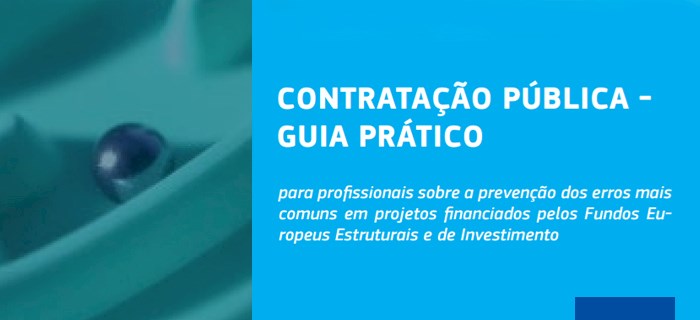
Interested in improving efficiency and quality of public procurement and ensure value of money for your contracts? Looking for tips on how to plan, publish and award avoiding the most common errors? European Commission's "Guidance for practitioners on the avoidance of the most common errors in public procurement of projects funded by the European Structural and Investment Funds" will answer your questions and will help you make the most out of EU investments.
The aim of this document, now available in all EU languages, is to provide guidance to public officials, involved in the management of the European Structural and Investment Funds (ESIF), helping them to identify and avoid areas of potential risk of errors and adopt best practices when it comes to carrying out public procurement procedures, a major source of irregularities in the management of the funds. Although it does not provide legal interpretation of the EU directives, it represents a useful tool steering practitioners through the areas where mistakes happen most commonly, giving practical tips on how to avoid them and how to handle each situation in all main stages of the process. This document also lists a number of good practice, real-life examples, and explanations of specific topics, case studies and templates. Visual tools, alert boxes, interactive elements, reference links to legislative texts, documents and sources of information further facilitates the use of this handbook.
The primary objective is not only to ensure regularity and transparency, but also to improve the efficiency and the effectiveness of public procurement with significant potential gains in terms of fair competition and quality of investments for the benefit of the public administrations, the companies involved and the beneficiaries of the projects.
The guide is one of the elements of the Action Plan on public procurement - part of the broader initiative launched by Commissioner for Regional Policy Corina Creţu to help Member States and regions improve the way they invest and manage Cohesion Policy funds, alongside the development of Peer 2 Peer, a platform for public officials from Member States to exchange expertise and best practice in administrative capacity-building, and Integrity Pacts, a tool to improve transparency and accountability in public procurement.